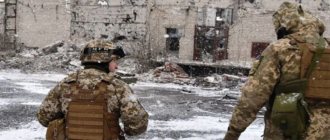Interaction of society with the activities of the penal system
The public should not completely transfer managerial powers to penal institutions; it should take an active part in the functioning of the penitentiary system, since it is society that can protect and defend the social interests of prisoners.
Participation of society in the activities of penitentiary institutions in the following branches:
- assistance to persons carrying out criminal punishments;
- control of objects and their functioning;
- carrying out educational activities with criminals;
- organizing their employment, providing household, social, and humanitarian services;
- sponsorship and charity activities, trusteeship;
- protection of rights and civil interests;
- assistance in acquiring general and special education;
- attraction to the culture and economy of the country;
- attraction to work, provision of jobs to persons released from prison;
- provision of medical care.
The participation of public figures is multifaceted. For example, they may be part of a supervisory commission, an educational movement, or act as a public overseer in correctional work.
Recently, penitentiary institutions have been under special control by the media, domestic and European communities. These organizations have a long history of overseeing the functioning of establishments. They not only identify problems in violation of the rights of prisoners and employees, but also provide all possible assistance to authorized persons.
Let us note that with all the interference of society in the system, it does not have the right to oppose it. Any spontaneous interference with operational or economic services is unacceptable.
Finance
The budget of the Federal Penitentiary Service for 2015 is 266 billion rubles, which exceeds the budgets of the Ministry of Health, the Ministry of Agriculture, the Ministry of Industry and Trade, the Ministry of Labor and Social Protection and the Ministry of . According to calculations by the Institute of Problems of Modern Society, the costs per convict amount to more than 400 thousand rubles per year. In theory, these costs include:
- nutrition
- clothing allowance
- Communal expenses
- medical care
- release allowance
- funeral expenses.
According to the Institute’s experts, the money does not reach the convicts themselves; Most everyday problems in colonies are solved at the expense of prisoners’ relatives.
Main tasks and functions
System functions include:
- apply measures based on the legislative basis of the country;
- hold in custody people suspected or accused of various crimes against society;
- control the behavior and actions of persons sentenced to a suspended sentence and people who received a reprieve from the court;
- defend the rights and interests of prisoners;
- ensure law and order and compliance with the law;
- provide a safe environment for prisoners and people in custody, as well as working citizens and other people moving around the territory of the penitentiary system;
- create conditions that comply with all norms of domestic and international law;
- attract subordinates to work - in the territories of detention there will always be industrial, logging or agricultural enterprises where people can get additional money;
- carry out social work with convicts aimed at social adaptation and rehabilitation.
- provide assistance in obtaining secondary and secondary specialized education, as well as provide career guidance training.
Any organization, performing its work, is based on various functions and tasks. Only by performing all the above functions can we talk about the legality of the entire penitentiary sphere.
Composition of the penal system
Compound:
- first of all, this is the Federal Service of the Ministry of Justice of the Russian Federation, under whose jurisdiction the system exists (Ministry of Justice FSIN);
- district or territorial administration of the penal system;
- institutions entitled to apply appropriate measures, for example, houses of arrest, correctional centers, centers associated with criminal execution;
- pre-trial detention centers (SIZO).
Execution of punishment is an integral part and one of the main elements of the fight against the criminal world. It is implemented by certain methods of influence using means designated by Russian legislation and assigned to the above-mentioned authorities created precisely for this purpose.
The courts apply the following types of measures:
- Imposition of monetary fines.
- Confiscation of property.
- Deprivation of various kinds of titles and ranks, state awards.
For example, deprivation of liberty is assigned to correctional facilities. In addition to this, they are entrusted with responsibilities such as the implementation of restrictions on freedom, arrests and executions (there is currently a moratorium on the death penalty in Russia).
Military personnel are exceptions, since sanctions of special military units of the Ministry of Internal Affairs, commanders of garrisons and military units and other places where military personnel serve are applicable to them. Some responsibilities are assigned to the courts.
Courts may hold liable:
- administration of places where citizens sentenced to removal from office work;
- a body legally authorized to revoke permits to engage in any activity;
- officials who conferred titles, ranks or awarded awards from the state.
As we can see, the complex of the penal system is extensive and diverse.
Authorized institutions that have the right to execute punishments are divided into:
- Open institutions. Inspections, correctional centers, arrest houses.
- Closed institutions. Colony settlements of various forms, children's colonies for teenagers under 18 years of age, prisons.
- Objects created not only for correction, but also for treatment. Correctional colonies of various regimes and for those imprisoned for life.
An organization involved in carrying out lawful actions bears a name - a legal entity. The resolution on its creation or liquidation is adopted by the Government and the executive authorities of the constituent entity of the Russian Federation jointly. The entire functioning of the establishments, along with structures, staffing and regulations, can be approved by the central governing body.
In addition to them, there are also territorial bodies. Let's say a governing body created in territories, regions and republics. They report to both central and local institutions.
For the successful development of the social sphere with the aim of introducing them to work, organizations of any form are created that the penitentiary can create and manage. Key penal institutions include institutions of pre-trial detention centers, facilities for supporting the activities of the penitentiary system, scientific centers and research laboratories affecting the design and educational sphere.
Thus, the Russian penal system is a unification of structures under one leadership with the same goals, objectives and functions aimed at the re-education of the convicted person.
Management
The Federal Penitentiary Service of Russia is headed by the director of the Federal Penitentiary Service, who is appointed and dismissed by the President of the Russian Federation.
The director of the service is allowed to have six deputies, including one first deputy. Deputy directors are also appointed and dismissed by the President of the Russian Federation.
Director
- Yuri Ivanovich Kalinin (December 15, 2004, No. 1555-August 3, 2009, No. 898);
- Alexander Alexandrovich Reimer (August 3, 2009, No. 899-June 25, 2012, No. 885);
- Gennady Aleksandrovich Kornienko (since June 25, 2012, No. 886).
Deputy Directors
Current deputies:
- Rudy Anatoly Anatolyevich, First Deputy Director of the Federal Penitentiary Service, Lieutenant General of the Internal Service, appointed by Decree of the President of the Russian Federation dated March 10, 2014 No. 132.
- Korshunov Oleg Adolfovich, Deputy Director of the Federal Penitentiary Service, Actual State Councilor of the Russian Federation 2nd class, appointed by Decree of the President of the Russian Federation dated March 10, 2014 No. 132.
- Boyarinev Valery Gennadievich, Deputy Director of the Federal Penitentiary Service, Lieutenant General of the Internal Service, appointed by Decree of the President of the Russian Federation dated June 8, 2015 No. 292.
- Maksimenko Valery Aleksandrovich, Deputy Director of the Federal Penitentiary Service, Major General of the Internal Service , appointed by Decree of the President of the Russian Federation dated April 12, 2016 No. 177.
Responsibilities of penitentiary institutions
Many people believe that these institutions exist only to convict the criminal. But his tasks are much broader.
Let's take a closer look at the responsibilities of penitentiary subjects:
- Maintain the procedure and conditions for the execution and serving of sentences at the proper level.
- Determine the necessary methods for the best correction of prisoners.
- Protect the rights and civil interests of wards.
- Provide assistance with socialization.
The modern legislative framework of Russia and international law are subject to constant reform and increasingly require humane treatment of wards.
Principles of work of employees:
- Legality. Any interaction must be determined solely by law. The basis for convicting a person should only be a court decision that is oriented towards the law and has entered into force.
- Humanism. The basis of the principle is the prohibition of any torture or other violent acts that degrade human dignity.
- Democracy (equality). Firstly, this is the equality of all people before the law. Secondly, this applies to the bodies that apply influence, whose activities must be carried out publicly, together with other structures, under their control.
- Individualization of the measures used. Individually thought-out measures of influence are provided in accordance with the temperament of the convicted person, the scale of his offense, behavioral characteristics, etc. Only by fully considering the personality of the criminal can it be determined in what conditions and how exactly he will be kept.
- Industry principle. It means that punishment always keeps pace with correction. For educational work with criminals, there is a wide range of different activities: occupational therapy, training, professional retraining in many fields.
All of the above principles are interconnected and serve one common goal - to protect the rights of a person placed in a criminal correctional facility.
Public Council
Composition of the public council
- Menshov Vladimir Valentinovich - chairman, film director, artistic director of the film studio "Zhenr", academician of the film academies "Golden Eagle" and "Nika", Honored Artist, People's Artist of Russia.
- Sushkov Boris Alekseevich - Deputy Chairman, Executive Director of the All-Russian public organization "Board of Trustees of the Penitentiary System".
- Kokhtachev Viktor Semyonovich - secretary, retired police colonel
- Bystritsky, Andrey Georgievich - Candidate of Pedagogical Sciences, Chairman of the federal state institution "Russian State Broadcasting Company "Voice of Russia"".
- Vagner Andrey Aleksandrovich - First Vice President - Operations Director of Integrated Energy Systems CJSC (IES-Holding).
- Grib, Vladislav Valerievich - President of the All-Russian public organization "Youth Union of Lawyers" of the Russian Federation, member of the Public Chamber of the Russian Federation.
- Bishop Irinarch of Krasnogorsk (Vladimir Grezin) is the chairman of the Synodal Department of the Moscow Patriarchate of the Russian Orthodox Church for prison ministry.
- Zelenova Elena Alekseevna - Candidate of Economic Sciences, Chairman of the Public Council at the Federal Penitentiary Service of Russia in Moscow, General Director of the non-profit charitable foundation for the promotion of social rehabilitation of convicts and protection of personnel of the penal system of the Ministry of Justice of Russia and employees of the Ministry of Internal Affairs of Russia "Trustee", teacher of the Department of Labor and Social policy of the Russian Russian Academy of National Economy and Public Administration under the President of the Russian Federation (RANEPA under the President of Russia).
- Kalabalin, Anton Semyonovich (1939-2013) - Chairman of the Public Council of the Federal Penitentiary Service of Russia for the Moscow Region, Director of the A. S. Makarenko Pedagogical Museum (Moscow ) .
- Karpenko Pyotr Mikhailovich - Candidate of Economic Sciences, manager of the non-state accredited private educational institution of higher professional education "Modern Humanitarian Academy".
- Kirill Vladimirovich Mazurin is a columnist for the operational political information department of the Interfax news agency.
- Kamil Fautovich Manapov is the head of the department for work with military personnel and convicts of the Department of Social, Charitable, Spiritual and Educational Activities of the Centralized Religious Organization of the Council of Muftis of Russia.
- Olkhovik Nikolay Vladimirovich - honorary worker in the field of youth policy of the Russian Federation, candidate of legal sciences, associate professor, chairman of the Public Council at the Federal Penitentiary Service of Russia for the Tomsk Region, member of the Public Supervisory Commission of the Tomsk Region, deputy director of the Law Institute of Tomsk State University, candidate of legal sciences.
- Pavlov Alexander Sergeevich - head of the department of social programs and projects in the field of youth policy at Rosmolodezh.
- Petrov Eduard Viktorovich is deputy director of the Directorate of Information Programs of the state television company, head of the Vesti - Duty Unit program, author and director of the Honest Detective program.
- Archimandrite Alexy (Ganzhin) - Candidate of Pedagogical Sciences, Chairman of the Public Council of the Federal Penitentiary Service of Russia for St. Petersburg and the Leningrad Region, Deputy Chairman of the Synodal Department for Interaction with the Armed Forces and Law Enforcement Agencies, Chairman of the Department for Interaction with the Armed Forces and Law Enforcement Institutions of St. -Petersburg Diocese.
- Rabbi Gurevich Aaron Yurievich is the head of the department of the Federation of Jewish Communities of Russia for interaction with law enforcement agencies.
- Rudov Sergey Yurievich - Chairman of the Board of Directors of the Intersectoral Bill House of the Fuel and Energy Complex.
- Sukhanov Alexander Dmitrievich is the president of the non-profit charitable foundation for the promotion of social rehabilitation of convicts and the protection of personnel of the penitentiary system and employees of the Ministry of Internal Affairs of Russia “Trustee”.
- Spesivtsev Vyacheslav Semyonovich - People's Artist of Russia, professor, artistic director of the Moscow Youth Experimental Theater.
- Tatarinov Andrey Yurievich - head of the political department of the Central Headquarters of the NGO "Young Guard of United Russia", member of the Political Council "Young Guard of United Russia", member of the Public Chamber of the Russian Federation.
- Teneta Elena Leonidovna is deputy regional director for the Russian Federation of the Dutch non-governmental humanitarian organization AIDS Foundation East-West.
- Ruslan Shamsudinov Shamsudinov is the Chairman of the Public Council of the Federal Penitentiary Service of Russia for the Rostov Region.
- Shalimov Yuri Yurievich - Director of the Directorate of Public Broadcasting of OJSC NTV Television Company.
- Shchepetin Alexander Vladimirovich - Chairman of the Public Council of the Federal Penitentiary Service of Russia for the Oryol Region.
Penal system institutions and their contingent
Let's highlight the main ones. Colony settlements. There are currently two forms of such establishments.
The first form is intended for persons who have committed a crime through negligence or those sentenced to a term of no more than 5 years. Most often, these include citizens convicted of a motor vehicle crime.
The second form is needed for people who have proven themselves positively in other places of deprivation of liberty and have been redirected to these facilities. They are transferred only after a certain time has passed, from the moment the court decision is announced, prescribed in the legislative act.
Comparing different places of deprivation of liberty, we can conclude that this type of imprisonment does not deprive people of freedom, but only limits it. Therefore, it is a subject of an open form, and the conditions in it are very different from others.
Characteristics:
- during the day free movement is allowed without security, but some control is present;
- you can obtain permission from the administration to temporarily leave the territory if the specifics of work or training require it;
- it is allowed to wear ordinary clothes, carry money or jewelry with you, which is not prohibited from being used;
- After obtaining the appropriate permission, it is not prohibited to live with families in the area where the colony is located or beyond its location.
In each colony-settlement, the same conditions are created for everyone, regardless of the type or degree of the criminal act.
General regime colonies. Usually, they hold under arrest men who were sentenced for the first time for committing crimes of varying gravity, committed intentionally. Or those who committed a criminal act through negligence, sentenced by a court to up to 5 years. In addition, there are female representatives here, with the exception of those re-engaged for particularly dangerous recidivism.
This regime also includes those who were redirected from other facilities by a judge’s decision. For example, people from children's correctional institutions, upon reaching full adulthood, or returning from a colony settlement, etc.
The majority of prisoners are in the regime under consideration, therefore there are various forms of general regime colonies, adapted for different populations of convicts: regular, light and strict. Which form an individual person will fall into will depend only on his behavior, attitude to work, speed and quality of re-education, etc.
A person who is sentenced to settlement ends up in a dormitory, divided into the three above forms. Such convicts are allowed to spend every month the funds lying in their accounts on food products and essential goods for a total amount not exceeding 50% of the minimum wage. They also have the right to take advantage of 4 short and 4 long visits per year and receive 6 parcels and the same number of parcels.
Maximum security colonies. Most often, men who were sentenced for the first time when caught with a particularly serious crime, repeat offenders, or women who repeatedly committed a crime of particular gravity are sent here.
The overwhelming majority of people in these places are repeat offenders who have already been imprisoned. This fact requires a special approach to organizing the measures used. The bulk of the persons there should be kept under normal conditions, excluding persons caught with a deliberate criminal act committed during the temporary period of imprisonment and persons transferred from a lighter regime.
Under normal conditions, prisoners live in dormitories that exist within a localized area.
Rights of convicted persons of this type:
- spend funds on the purchase of food products and essential goods no more than 40% of the minimum wage;
- make 3 short and 3 long dates in a year;
- receive 4 parcels and the same number of parcels per year.
Special regime colonies. Men sentenced by the court for committing a particularly dangerous repetition of a crime are serving their sentences here. In addition, in these places there are people whose death penalty was abolished through pardon and sent to serve life.
Cell detention affects the entire procedure for keeping people in special conditions. Prisoners are limited in their personal time and communication with other people. And also the use of material and household items is severely limited.
Prisoner's rights:
- spend money on basic necessities received while serving sentences;
- receive one package and parcel per year;
- walk no more than one and a half hours a day in the created courtyards near the territory of the criminal facility.
Number of convicts in Russia
Number of prisoners per 100,000 citizens by country, 2012
Until 2000, Russia was in first place in the world in terms of the number of prisoners per 1000 population. However, currently the first place is occupied by the United States , and Russia, after China, is in third place.
As of November 1, 2015, there were 642,444 people held in penal institutions.
Protecting the rights and responsibilities of employees
The professional activity of penitentiary service employees is one of the main factors influencing the functioning of the entire prison system.
Any activity of employees cannot be carried out without a list of rights and responsibilities that are assigned to them. The main factor that confirms the competence of an employee is his professionalism, on which the possibility and success of the re-education of convicts largely depends. In addition, other requirements are imposed on personnel. For example, the presence of special education, age criteria - from 18 to 40 years, legal capacity and lack of criminal record.
Modern law tells us that every employee of the penal system must:
- strictly comply with the laws of the country that directly or indirectly affect the execution of punishment;
- know that an employee’s qualifications are influenced by his knowledge of the legal framework and regulations, which he must easily navigate. All this constitutes the legal side of responsibilities.
Apart from this, there are other responsibilities. For example, showing humanity and tolerance to prisoners, believing in the re-education of even repeat offenders. The stated qualities will always depend on the culture, upbringing and outlook of the employee.
Sometimes an employee has to pacify possible aggressive actions on the part of subordinates. The penitentiary sphere will always require physical and moral endurance and optimism from a person.
Interesting Facts
- According to the Decree of the President of the Russian Federation of April 30, 2008 No. 656 “On the organization of security of specialized psychiatric hospitals (inpatient facilities) with intensive supervision of the Federal Agency for Health and Social Development,” the Federal Penitentiary Russia is entrusted with the functions of security of psychiatric hospitals with intensive supervision. According to some experts, this is an unusual function for the penal system, since special hospitals of this type are part of the structure of the Russian Ministry of Health and Social Development.
- As of January 1, 2009, for the first time, the average cell area in Russia per pre-trial detention center per suspect or accused increased to 4.5 square meters. meters. 10 years ago this figure ranged from 0.5 to 2.5 square meters. meters.
- Appointed at the beginning of August 2009 to the position of director of the Federal Penitentiary Service of Russia, A. A. Reimer had not previously worked a single day in the penitentiary system. The same situation arose with G. A. Kornienko, who was appointed director of the Federal Penitentiary Service of Russia in June 2012.
- The punishment in the form of arrest, which must be served in an arrest house (PEC RF), since 1997 cannot be introduced into the practical activities of the Federal Penitentiary Service of Russia. Thus, arrest has remained a “dead punishment” for almost two decades.
- Since the beginning of 2010, the Electronic FSIN .
- Taking into account the worldwide fame of the experience of the Bolshevo labor commune under the leadership. M. S. Pogrebinsky (described in the famous movie “Start in Life”) and the educational experience of the Colony. Gorky and the Commune. F. E. Dzerzhinsky under the leadership of A. S. Makarenko, many employees, including heads of the penitentiary service, could not help but become interested in the experience of applying Makarenko’s educational pedagogy (as well as a number of his followers). However, if Makarenko’s direct students (S. A. Kalabalin (1903-1972), A. G. Yavlinsky (1915-1981), etc.) have experience (despite frequent and significant opposition to it from inspectors and supervisory persons and departments) was generally very successful, then those who tried to “implement” Makarenko’s approaches (system, educational pedagogy) only on the basis of Anton Semenovich’s works often faced failure. One example of such attempts in the 80s of the twentieth century. in the former Kuryazhskaya (same!) colony, the teacher-educator of this institution, Yuri Ivanovich Chapala, described in detail in his book “Essay on a Non-Free Topic”, where it is noted that as a result of the “book” implementation of the Makarenko system, both the level of recidivism among convicts and The situation in the colony itself worsened. And this result, unfortunately, is not unique. The well-known social teacher and writer V. A. Eremin notes in this regard that often such a result is associated with attempts at partial, fragmentary implementation of the Makarenko system and, as an example, tells what violations, and often humiliation of the educated, the use (separate from system) of the principle of collective responsibility among convicts. The famous teacher (previously a front-line soldier) G. M. Kubrakov also encountered great difficulties in launching the “Makarenko system” based only on book experience in his boarding school. In his books, he says that he managed to establish the system only after meeting and discussing the issue with the famous Makarenko expert Professor V.V. Kumarin. Essentially, we are talking about the fact that from the beginning of the 1930s, the Soviet school began to use a system of education based on a unified approach to all students without taking into account the significant diversity of their natural abilities, circumstances and hobbies (the so-called “equalization”) , which inevitably leads to an atmosphere of psychological violence, especially increasing in the upper grades (and incompatible and interfering with the successful launch of Makarenko’s system in the field of education itself). Makarenko himself used different (entirely cultural) approaches in teaching himself, but could not describe this in his books for censorship reasons.







